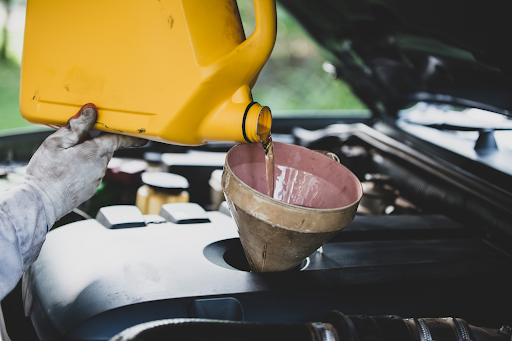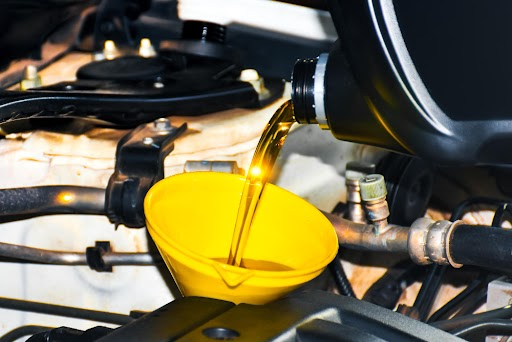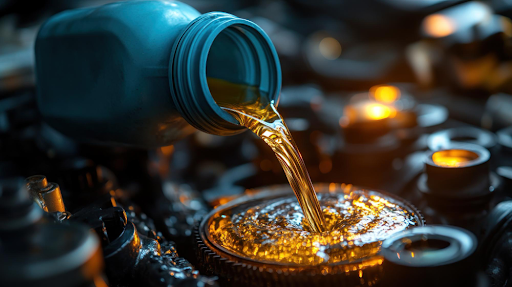Gearboxes in commercial trucks operate under extreme pressure and heat. Over time, even minute contaminants can cause significant damage to these parts.
Here’s the catch: the lubricant you use plays a huge role in avoiding this damage. Synthetic gear oil is already renowned for its superiority over traditional oils, but without proper contamination control, its advantages may be lost.
Why Contamination Control is Important
Contaminants such as dirt, dust, water, and metal particles are the stealthy assassins of gear systems. They sneak in through seals, vents, or even during oil refills. Once inside, they can abrade metal surfaces, cause friction, and accelerate wear. In heavy-duty trucks, buses, ambulances, and other commercial vehicles, this can lead to decreased efficiency and ultimately, failure.
Clean synthetic gear oil keeps gears well-lubricated, forming a protective layer that minimizes friction and ensures smooth movement of components under heavy loads. However, if the oil is contaminated, it loses its ability to function properly. Instead of protecting the gear surfaces, it becomes abrasive and speeds up damage.
How Synthetic Gear Oil Deals with Contamination Better
Synthetic gear oil is formulated with high-performance additives and a stable chemical makeup. This results in greater resistance to breakdown under heat and pressure. Compared to mineral-based oil, synthetic gear oil has enhanced cleaning and dispersing capabilities. This means it can keep contaminants in suspension for longer periods, without letting them settle on gear surfaces.
But even the best oil requires maintenance to perform optimally. Contamination control is the process of keeping the oil clean for as long as possible.
Types of Contaminants Impacting Gear Oil
Here are the primary types of contaminants you should be aware of:
- Solid Particles
Dust, sand, and metal shavings from gear wear are the most common contaminants. These particles act like sandpaper, wearing down gear teeth and bearings. - Moisture
Condensation or water leakage can mix into the oil, weakening its lubricating capacity. It can also lead to rust and corrosion within the gearbox. - Chemical Contaminants
Remnants of old oil changes or incompatible additives can break down the oil, compromising the performance of the gears.
Best Practices for Contamination Control
Keeping your gear oil clean is not just about using the right product. It’s also about adopting good maintenance practices. Here’s what helps:
- Use High-Quality Synthetic Gear Oil
Choose a trusted, high-performance synthetic gear oil like the one formulated specifically for Tata Motors commercial vehicles. It offers better resistance to contamination, higher film strength, and improved protection. - Regular Oil Analysis
Regular inspections enable you to identify contamination in the early stages. Through oil testing, you can detect metal wear, water content, or other contaminants before they cause significant damage. - Effective Sealing and Storage
Always ensure the gearbox is sealed tightly. Store oil in clean containers, away from dust and moisture, to prevent contamination during oil changes. - Adhere to Recommended Oil Change Intervals
Overfilled oil can lead to a buildup of contaminants. Maintaining oil at the recommended levels ensures your system stays in good operating condition.
Why Synthetic Gear Oil is Perfect for Tata Motors Commercial Vehicles
Heavy-duty transportation vehicles such as school buses, trucks, and milk vans operate under tough conditions day in and day out. Heavy loads, stop-and-go traffic, and extended operating hours put a strain on the gearbox. Synthetic oil is specifically formulated to meet these demands. Its sophisticated formula provides enhanced thermal stability, longer life, and better wear protection.
Additionally, synthetic gear oil flows better at low temperatures and maintains its thickness at high temperatures, ensuring consistent lubrication, regardless of the weather or driving conditions.
Final Thoughts
Contamination control is not just a maintenance procedure; it’s a critical component in ensuring your vehicle’s gearbox operates efficiently in the long run. Along with proper maintenance procedures, high-quality synthetic gear oil can keep your commercial vehicle’s gear system running smoothly and help avoid costly breakdowns. Tata Motors Genuine Oil guarantees that each drop of oil is formulated to meet the needs of trucks, buses, ambulances, and other commercial vehicles.






